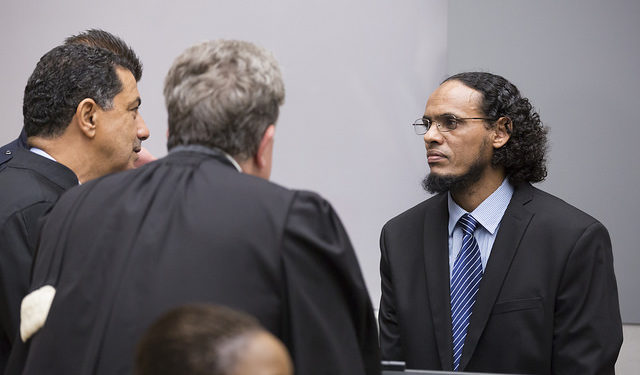Judges at the International Criminal Court will next week sentence Ahmad Al Faqi Al Mahdi, who last month pleaded guilty to the war crime of destroying historical and religious monuments in Timbuktu.
Al Mahdi’s case will be the fastest to ever be concluded by the ICC, having lasted only six months since March 24, 2016 when it was confirmed. The case is the first international trial focusing on the destruction of historical and religious monuments, and the first ICC case where the defendant made an admission of guilt. The Prosecution presented its evidence and called three witnesses. The legal representative of the victims and the Defence presented their views before the Judges on August 24, 2016, and this week, the ICC announced that judges will be ready to rule on the case next week.
Trial Chamber VIII is composed of Judges Raul C. Pangalangan (presiding), Antoine Kesia-Mbe Mindua, and Bertram Schmitt.
On August 22, 2016, at the opening of the trial, Mr Al Mahdi admitted guilt for the war crime of destroying historical and religious monuments in Timbuktu (Mali), between around June 30, 2012 and July 11, 2012. Al Mahdi allegedly was a member of Ansar Eddine, a movement associated with Al Qaeda in the Islamic Maghreb working closely with the leaders of the two armed groups and in the context of the structures and institutions established by them. It is alleged that, until September 2012, he was the head of the “Hisbah” (a body set up to uphold virtue and prevent vice), in April 2012. He was also associated with the work of the Islamic Court of Timbuktu and involved in the execution of its decisions. The warrant of arrest against him was issued by ICC Pre-Trial Chamber I on September 18, 2015 and he was surrendered to the ICC on September 26, 2015. His trial took place between August 22 and 24, 2016. Al Mahdi is in ICC custody.







